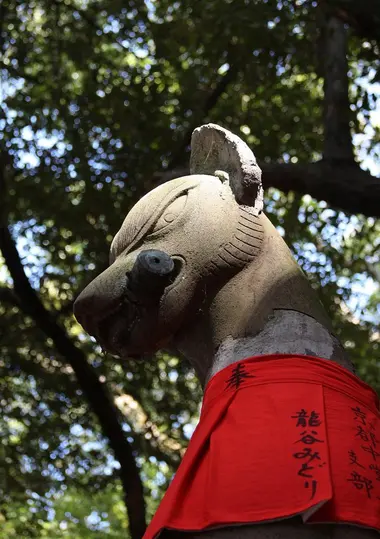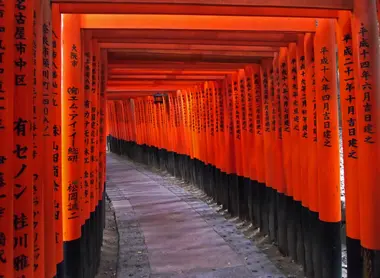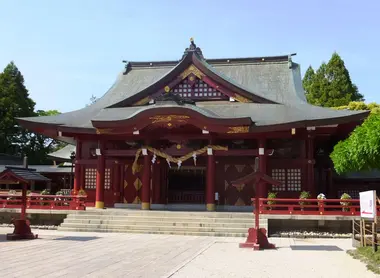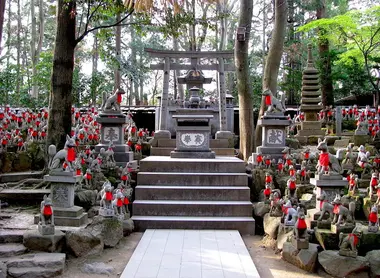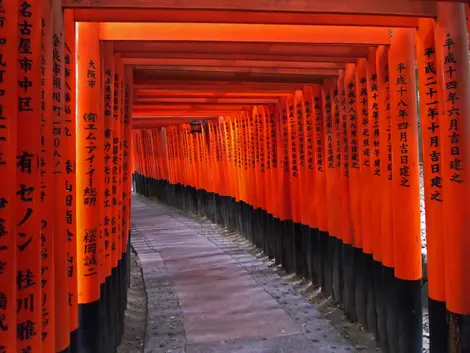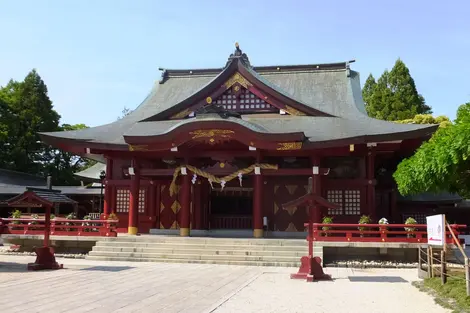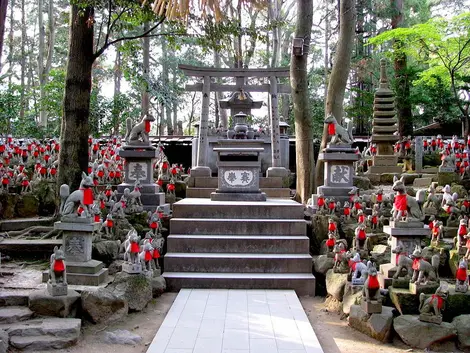The Deity Inari in Shintoism
- Published on : 21/01/2020
- by : Ph.L / J.R.
- Youtube
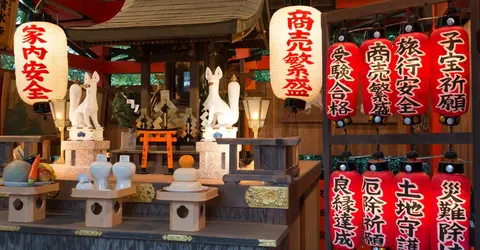
Sanctuaire Inari
Flick/ thaths
Inari, the fox kami with multiple origins
Deity of rice, harvest, and fertility, Inari is one of Japan's most famous and beloved Shinto deities. With more than 30,000 shrines dedicated, it is also one of the most honored in the country. Learn more about this kami which holds a special place in the hearts of the Japanese ...
Who is the kami Inari?
Literally "rice growth ", Inari's name is commonly associated with the world of agriculture and grains. However, the cult dedicated to him encompasses beyond.
Representing the spirit of life that is in everything, Inari symbolizes soil fertility as well as births. The working force, as well as the maternal gentleness. As such, she also appears as the protector of women. And in particular, those marginalized such as undesirables, prostitutes, and infertile women.
- Read also: Japanese superstitions
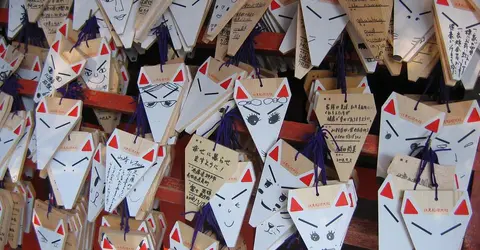
Ema en l'honneur de Inari
Flick/ RinzeWind
Although today Inari is often represented in the form of a fox holding in its mouth a sickle, a wheat germ, or the key to the grain storage, this was not always the case as originally, there was a clear distinction between the deity itself and the foxes she chose as companions.
The origins of the cult of Inari
Ancient, the cult of Inari as we know it today would have arisen from the meeting between Shintoism and the pagan cult of youkai. Pointing to the spirits of Japanese folklore, youkai is part of the legend since ancient times. Animals endowed with magical powers, ghosts, monsters, or simple minds of the forest, there are hundreds of youkai. Among them, the Kitsune, the spirit of Fox.
Found mainly in the mountains, the Kitsune is a metamorphic spirit that likes to play lost. Neither good nor bad, he would protect the crops of those who would feed him, when he is not playing mischievous tricks on men disguised as a beautiful woman... This characteristic, imitating the divinity Inari , contributed to the representation of the latter in the form of a fox.
- Read also: Japanese monsters and ghosts
Until the eighth century, it is a different kami who was honored for protecting crops. Named Ine-ari, had the appearance of an old man. It was not until the seventeenth century that the cult of Inari divinity fox popularize the archipelago after the pagan worship had met that of Ine-ari.
This multiple origins is also one of the reasons Inari worship is prevalent in Japan. A changeling, Inari can transform into almost anyone. Not belonging entirely to any religion, it, therefore, leaves it to people's imagination to build an image to honor.
Where to worship Inari today?
Representing nearly 40% of the country's Shinto shrines, Inari shrines are found throughout Japan. Recognizable by the statues of foxes guarding their entrances, these places of worship are mostly colorful and shimmering. The entrance to an Inari shrine is indicated by one or more red torii. Kitsune statues can be adorned with yodarekake, votive bibs, red. The statues are always presented in pairs.
Offerings of rice, as well as sake, are common. Sometimes, inari sushi is offered: it is vegan sushi wrapped in fried tofu. Fried tofu is indeed considered to be the favorite food of foxes. This is why you will find many stalls preparing this dish around the sanctuaries dedicated to Inari.
Among all the shrines, Fushimi Inari Taisha in Kyoto is certainly the most famous.
Built by the Hata clan, from Korea, in the eighth century, Fushimi Inari Taisha is the image of its main goddess. Although it is largely dedicated to the worship of Inari, it is also the place of worship of pagan trees, serpents, and the dead. A charming spiritual complex that covers no less than 870,000 m².
Do not miss the Motomiya matsuri which takes place in July is the most important festival of the Fushimi Inari shrine. In the evening, by the light of the red lanterns, you will witness people wearing kitsune masks...
- Read also: Matsuri, Japanese festivals
Shrines dedicated to Inari in Japan
You will also find other sanctuaries dedicated to Inari, spread across the entire archipelago.
Kasama Inari-jinja has a rich history, stretching back over thirteen centuries. Located in Ibaraki Prefecture, it is popular with devotees who gather on New Year's Day.
If you pass by Iwanuma (Iwagi) be sure to visit Takekoma Inari-jinja, which is the second oldest shrine in the country dedicated to Inari. Finally, in the town of Aichi is the Toyokawa Inari complex which is a unified place and renowned as one of the three largest shrines in Japan dedicated to the kami Inari.
In Osaka is the Tamatsukuri Inari Shrine, built by Toyotomi Hideyoshi in the sixteenth century to protect the Osaka Castle. The shrines dedicated to Inari located in Tokyo are less ancient, but we can still mention the Hanazono Inari-jinja, installed in Ueno Park and very pleasant to walk through, but also the Toyokawa Inari Betsuin shrine, which is famous for its hundreds of fox statues.
